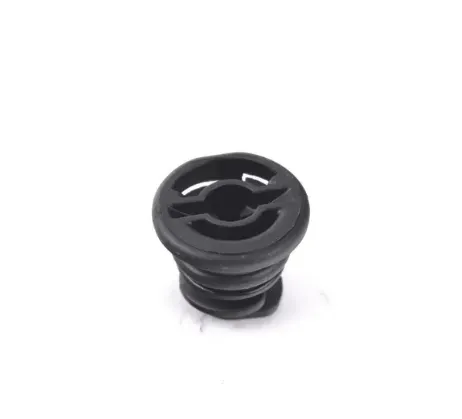Fixing Oil Pan Plug Issues: Leaks, Stripped Nuts, and the Right Replacement Solutions
Routine oil changes are one of the most important maintenance tasks for any vehicle, but problems with the oil plug can quickly turn a simple job into a frustrating repair. Whether you're dealing with an oil pan drain plug leaking, a stripped thread, or a loose fitting, these issues can lead to oil loss, engine damage, and higher repair bills.
One of the most common culprits behind leaks is an oil pan bolt leaking due to over-tightening, worn threads, or a damaged washer. In many cases, people mistake a minor oil drip as coming from the oil filter or gasket, when in fact, the oil pan drain plug leaking is the real issue.
Even more troublesome is when the oil pan nut is stripped. This happens when the threads inside the oil pan (often aluminum) are worn out or damaged by repeated over-tightening or cross-threading. Once stripped, the pan may no longer hold a drain plug securely, leading to persistent leaks or even sudden oil dumps if the plug falls out.

Fixing the Problem: Oil Pan Drain Plug Replacement and Repair Options
When leaks or thread damage occur, you’ll need to act quickly to prevent engine oil loss. The first and simplest solution is a proper oil pan drain plug replacement. This means removing the old plug, inspecting the threads, and installing a new plug that matches your vehicle’s make and model.
When replacing a plug, always:
Use a plug with the correct thread size and pitch
Replace the washer or gasket (often a source of slow leaks)
Torque the plug according to your vehicle’s specifications—over-tightening is a leading cause of damage
However, if the plug can’t tighten properly due to stripped threads, you may need more advanced solutions, such as:
- Thread Repair Kits
Thread kits like Helicoils or Timeserts allow you to re-thread the damaged hole and install a threaded insert that fits your new plug.
- Oversized or Self-Tapping Drain Plugs
These plugs are slightly larger than the original and cut new threads into the pan as they are installed.
- Oil Pan Saver Plug
A reliable, budget-friendly option is the oil pan saver plug. This plug is specifically designed to repair stripped drain holes without removing or replacing the entire pan. It usually consists of a two-piece design with a sealing washer and sometimes a self-tapping feature to re-create a tight fit in damaged pans.
Advantages of oil pan saver plugs:
Quick fix for stripped threads
No need to replace the entire oil pan
Can be installed without removing the pan
Often reusable with proper care
While not a factory solution, oil pan saver plugs are widely used in repair shops as a durable alternative to full oil pan replacement.
Don't Forget the Oil Level Plug and Preventive Maintenance Tips
Another often-overlooked component is the oil level plug. While less common in cars, it is standard on many manual transmissions, gearboxes, and differentials, where oil levels must be manually checked and maintained. A missing or loose oil level plug can cause gradual oil loss and result in gear damage or overheating.
When working with your vehicle’s oil system, follow these preventive steps to avoid future issues:
Inspect all plugs during each oil change, including the drain plug and oil level plug
Clean the area around the drain plug before removal to prevent contamination
Always use a new crush washer or gasket to ensure a proper seal
Avoid over-tightening drain bolts—use a torque wrench to apply manufacturer-recommended specs
Check for leaks a few minutes after the oil change and again the next day
If you notice repeated issues with leaking, even after a proper plug replacement, it may be time to assess the condition of the oil pan itself.
Solve Leaks and Stripped Threads Before They Cause Bigger Problems
A leaking oil plug or stripped oil pan nut may seem minor at first—but they can lead to serious damage if ignored. By identifying issues like an oil pan bolt leaking, addressing a stripped oil pan nut, and choosing the right oil pan drain plug replacement or oil pan saver plug, you can avoid major repairs and keep your vehicle running smoothly.
Key Takeaways:
A leaking oil pan drain plug is often caused by worn gaskets or over-tightening
A stripped oil pan nut can be fixed with thread repair kits, oversized plugs, or oil pan saver plugs
Replace your oil pan drain plug during regular oil changes if there's visible wear or leakage
Don’t overlook your oil level plug, especially in manual gearboxes and transmissions
Always use proper torque and sealing washers to prevent future leaks
Staying ahead of small issues like these ensures a healthier engine, better performance, and fewer unexpected repair costs.
-
High-Quality Seal 12x22x5 for Industrial & Automotive Use | YJM Seal
Wararka Nov.25,2025
-
Seal 12x20x5: Precision Radial Shaft Seals for Industrial Reliability
Wararka Nov.24,2025
-
Seal 12x18x5: Essential Guide to Specifications, Applications & Vendors
Wararka Nov.24,2025
-
Understanding Seal 12 20 5: Applications, Specifications & Industry Insights
Wararka Nov.23,2025
-
Durable Oil Seal 85x110x12 – Reliable Sealing Solutions for Industry
Wararka Nov.23,2025
-
Durable and Precise Oil Seal 75x95x10 for Efficient Machinery | YJM Seal
Wararka Nov.22,2025
-
Durable Oil Seal 75x100x10 for Reliable Industrial Performance | YJM Seal
Wararka Nov.22,2025
Qaybaha alaabta















